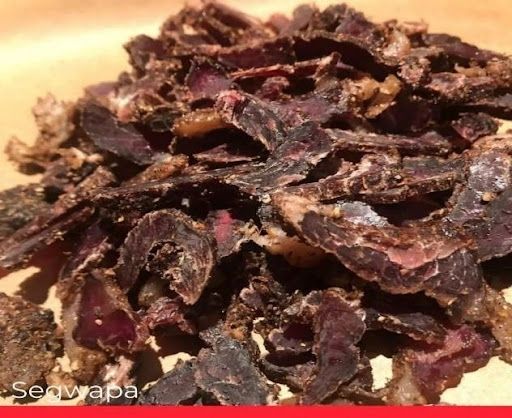DELICATELY FLAVORED Dijo tsa Setswana (Setswana Traditonal Food)
Dijo tsa Setswana (Setswana Traditonal Food)
Written by: Isabel Obeng
Africa is blessed with cultural diversity, particularly food. Every part of the continent has a staple food, and in this instance we are indulging in the setswana cuisine. Botswana has a large variety of foods, some are grown locally whilst some are imported from neighboring countries. Batswana are mainly subsistence farmers and they pride themselves in their culture especially when it comes to food. The setswana usual serving consists of a starch and protein, relish and a salad, so it can be a bit difficult to cater to a vegetarian diet as there are limited options, but students have been able to supplement their diet with the options available.
Setswana cuisine consists of but is not limited to maize meal (pap/phaleche), samp (setampa), sorghum (mabele), fat cakes (magwinya) which is fried dough and caterpillars (Mophane worms), and one of the most famous protein (seswaa), which is salty pounded meat.
Seswaa is prepared by men and simmered until soft using only salt, cooking oil, and water in a three-legged iron pot. It is a standard delicacy at most traditional events, including weddings and funerals, and is made with red meat. A large amount of high-quality organic beef is produced in Botswana mainly because the culture is centered around cattle farming. Other forms of protein include; free range chicken, lamb and tripe (serobe), which is the intestines and some offals of goats, sheep, or cows. Sometimes trotters are featured in this dish.
Batswana are skilled at food preservation, especially when it comes to preserving meat as they did not have refrigerators. They do this by cutting red meat into string-like pieces, rub it with salt and sometimes chili and then air dry it, and once the meat is fully dried, it is called (segwapa) biltong.
As for the starch, sorghum is sometimes mixed with yellow melon and sour milk to make a starch known as (Bogobe jwa lerotse). Yellow melon is usually prepared with sour milk for preservation and kept in storage for future use. Other starches prepared in the setswana culture include; samp mixed with beans or cooked without beans and mixed beans called (dikgobe). There are different types of beans grown locally such as black beans , sugar beans and kidney beans and peanuts (manoko).
Although flour is imported and not a staple of the diet, a number of bread recipes have evolved and are now considered a national fare. For these, flour is molded into dough and cooked in a variety of ways. The most popular are flat cakes (diphaphatha),which are cooked over hot coals while covered in a lead pot, fat cakes(magwinya) which are fried in hot oil, and dumplings (madombi) which are boiled in hot water or inside boiling beef stew.
DRINKS
Additionally, Botswana is home to several indigenious fruit such as marula fruit so they produce their own homemade beverages, using watermelon, marula fruit(Sclerocarya birrea), or ginger powder to make ginger beer famously known as (Gemere), it is usually left to ferment for a day or two. Mageu is another type of drink made by using leftover porridge and water, this is famous for serving to sick people as it is smooth and easily edible without having to chew on but nutritious.
There are many alcoholic beverages that are traditionally manufactured. The sorghum seeds can also be used to make traditional beer (Bojalwa ba Setswana), the beer is usually fermented to give it a kick. Chibuku, a commercially produced and packaged beer based on the traditional umqombothi home-made African beer made from either maize and sorghum, is particularly popular in rural areas and small towns. This is because it is sold by unlicensed homesteads with licensed retailers reluctant to sell the drink on their counters.
So as an international student on this exchange program, have an open mind when it comes to an international cuisine, enjoy the exotic palate and savor the memories while abroad.
Related Posts
What I Packed to Study Abroad in Gaborone, Botswana
A master list of the items you should bring to study abroad in Gaborone, Botswana - including tips and tricks from my student perspective at the University of Botswana campus.
Arthur Pounds Join UB Marathon: Persevering through the finish line
Authored by: Ruby Pitinyane On October 13, 2024, Arthur Pounds (AJ) took part in the University of Botswana (UB) marathon at the UB Stadium, marking a significant milestone for him... keep reading
Study Abroad in Botswana Africa
For my study abroad, I chose the Community Public Health Program in Gaborone Botswana during the Fall 2024 semester. I am a public health major on a pre-PA track and... keep reading







